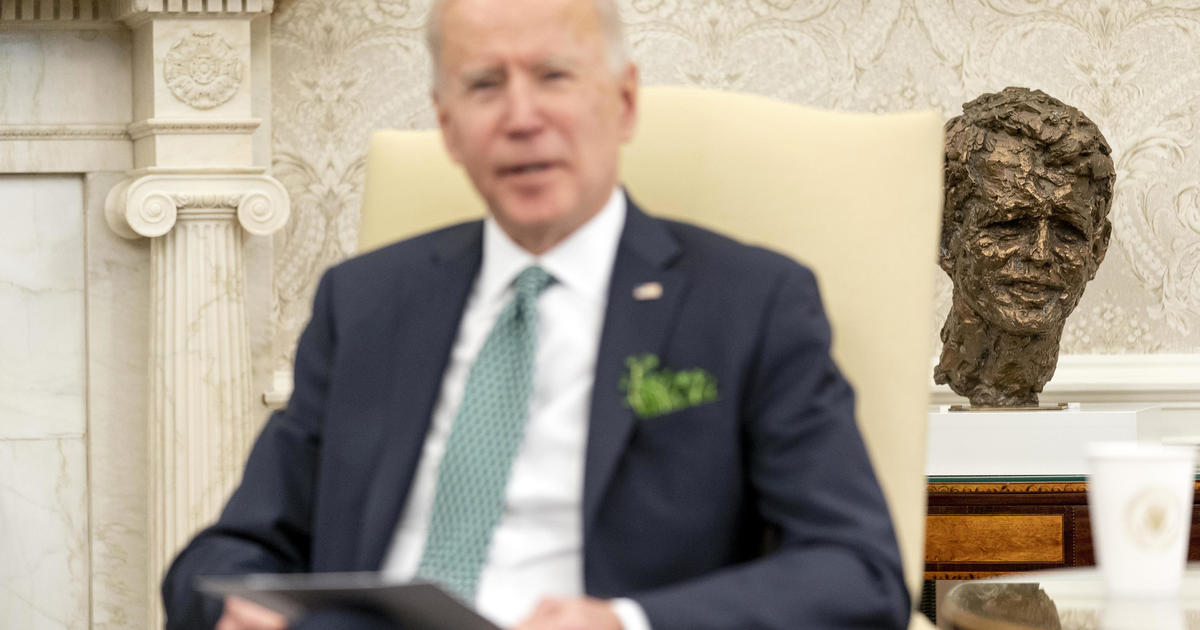What's next for the Build Back Better Act?
President Biden this week signed the bipartisan infrastructure bill into law— and the House has also moved a step closer to passing Mr. Biden's social spending agenda, which aims to expand the social safety net for millions of Americans and also contains over $500 billion to combat climate change. House Speaker Nancy Pelosi hopes that lawmakers can vote on the Build Back Better Act this week, but even if they do, it will still have some obstacles to overcome before it's law.
Here's what the road ahead looks like for the bill.
Waiting for the Congressional Budget Office
During the last-minute negotiations before the infrastructure bill was passed, moderate Democrats gave their caucus assurances they would vote for the Build Back Better Act if the Congressional Budget Office finds in its financial impact analysis that the measure is in line with White House cost and revenue estimates. They want to know whether the revenues are sufficient to pay for the cost of the bill and that it won't add to the nation's burgeoning debt.
If the bill meets that criteria, it should have enough support to pass in the House. The CBO says that it will release its complete analysis of the bill by Friday.
Changes in the Senate
The legislation the House passes is sure to undergo some changes in the Senate, based on the CBO analysis, a ruling by the Senate parliamentarian and negotiations among senators. It will require the support of all 50 Democrats to pass, and so, moderates Joe Manchin of West Virginia and Kyrsten Sinema of Arizona will have an outsized voice in what stays and what goes. Here are some of the provisions that may be excised or changed:
Paid leave: It was in the bill, then out — and now it's back in again. Democrats originally had 12 weeks of paid family and medical leave in the measure but were forced to remove it because it was too costly. But the provision was championed by a number of women lawmakers in the House and Senate, and they succeeded in restoring a more limited version that would give qualifying Americans four weeks of paid leave.
Although Manchin supports paid leave in principle and has even introduced a paid leave bill, he says that this bill, passed under reconciliation with only the votes of Democrats, is the "wrong" way to legislate it. He argues paid leave must be in a separate bill and should be written to attract bipartisan support, which will make it less susceptible to repeal or other challenges.
Changes to the SALT tax cap: The cap, which limits the amount of state and local taxes that individuals can deduct from their federal taxes, would be raised by the social spending bill being considered by the House. The cap, which largely affects wealthier Americans in coastal Democratic-dominant states, would rise from $10,000 up to $80,000 through 2031 and then drop back to $10,000 after that. Currently, the SALT cap, which was put in place by the Republican tax cut enacted in 2016, is scheduled to expire in 2026.
This would be one of the most expensive provisions in the bill, costing about $400 billion for the five years it would be in effect, and, as the Center on Budget and Policy Priorities points out, it would mostly benefit Americans who make over $200,000 per year.
Immigration: This provision would allow the Department of Homeland Security to give an estimated 7 million unauthorized immigrants — including Dreamers, coronavirus-era essential workers and farm workers — work permits and temporary protection from deportation, similar to Deferred Action for Childhood Arrivals (DACA), an Obama-era initiative.
It must be analyzed by the CBO and then would be subject to the ruling of the Senate parliamentarian, who has rejected two earlier attempts to provide immigration relief. Both of those, however, would have conferred permanent legal status, unlike this approach.
In her rejection of Democrats' second attempt to include immigration in the legislation, Senate Parliamentarian Elizabeth McDonough wrote, "The change in status to LPR [lawful permanent residency] remains a life-long change in circumstances the value of which vastly outweighs its budgetary impact."
Shorter-term measures, long-term funding: A few provisions in Build Back Better would not be funded for the decade-long duration of the legislation, like aid for child care and universal pre-K, which are only slated for six years. Also, reduced premiums for those buying Affordable Health Care Act plans and health care coverage for poorer Americans who live in states where governors opted not to expand Medicaid under the ACA will last five years.
Manchin has insisted that 10 years of funding should pay for 10 years of services and has accused some Democrats of running a "shell game" by putting some provisions in the bill that will not last the full decade.
If the Senate changes the bill...
...then it goes back to the House, and House lawmakers will have to take it or leave it.
President Biden recently acknowledged it would be "a tough fight" to get Build Back Better passed.
- What will Biden's bipartisan infrastructure bill do?
- What's in Democrats' Build Back Better plan? A lot of Americans don't know - CBS News poll
No vote is currently scheduled for the Build Back Better Act in the House, but House Democrats expect to vote on it by the end of the week, beginning perhaps Thursday.
The latest version of the bill includes provisions to fight climate change, fund child care and universal pre-K and to extend the expanded child tax credit, among other things. Free community college, one of the original provisions, was cut from the bill.
— Jack Turman, Sarah Ewall-Wice, Camilo Montoya-Galvez and Kris Van Kleave contributed to this report.




